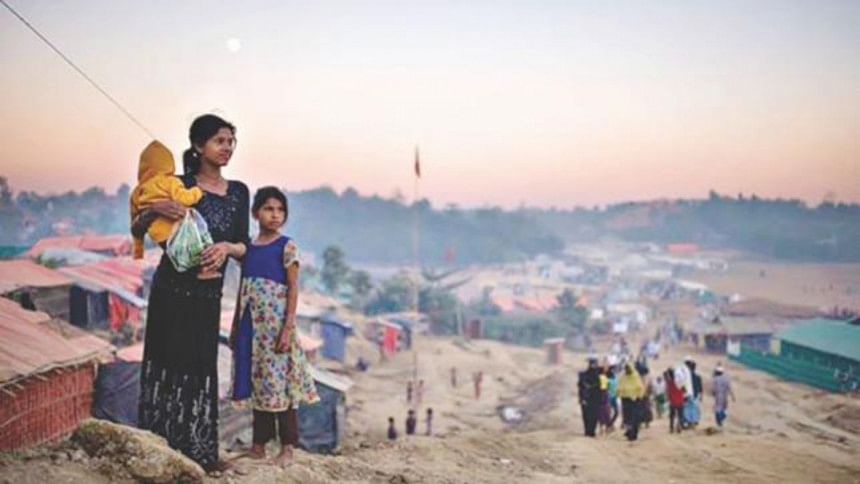Climate change diplomacy is now the challenge

Last May, Prime Minister Sheikh Hasina was invited to the annual leaders' high-level meeting in Munich, Germany, to speak on the growing concern about the global security threats due to climate change.
On July 10, Bangladesh will be hosting President Heine of the Marshall Islands who heads the Climate Vulnerable Forum (CVF)—which is a group of nearly 50 of the most climate vulnerable developing countries—which Bangladesh was a founding member and head of for a few years.
At the same time, we are expecting Kristalina Georgiva, the Chief Executive Officer of the World Bank along with Ban Ki-moon, the former Secretary General of the United Nations who are two of the three co-chairs of the Global Commission on Adaptation (GCA).
In September this year, the current Secretary General of the UN, Antonio Guiterres, called for a Climate Change Summit where the invitees are only the leaders who he feels are being proactive in tackling climate change. Prime Minister Sheikh Hasina of Bangladesh is one of those leaders invited to the adaptation and resilience track of the summit. He has asked leaders to come with "plans not speeches" and also to bring "offers" as well as "asks".
It is therefore clear that Bangladesh has already embarked on climate change diplomacy under the leadership of the prime minister herself.
Here are some suggestions on how Bangladesh can take this issue further in future.
First, the prime minister can take a message from the people of Bangladesh that the country wants to change the narrative of it being regarded as one of the world's most vulnerable countries to climate change, to becoming one of the most resilient ones. Also associated with this message is that, it is a whole-of-society approach where, under the leadership of the government, it is attempting to involve civil society, academics, youth, the private sector and media in a collective enterprise to become more resilient.
The second message that should be upheld is how Bangladesh has been investing in enhancing its own resilience for over a decade with its own budget and has learned a great deal about local level adaptation in particular and how to integrate climate change planning into national, sectoral and local level plans—something that would be required of all countries sooner rather than later. Bangladesh will be happy to share its own experiential knowledge in tackling climate change both South-South as well as South-North. In this respect, we should invite representatives from other countries to join the annual Gobeshona conference every January, where current research on tackling climate change in Bangladesh is shared with each other.
My third and final suggestion is to include climate change diplomacy in the regular training of every new batch of foreign service officers of the Ministry of Foreign Affairs. The Foreign Service Academy has done such a course on a pilot basis last year which went quite well. It should become a regular feature as every Bangladeshi diplomat should be climate change literate from now on.
It is also worth considering the appointment of a climate change envoy as many countries have done. Such a person should be a senior (or recently retired) diplomat with experience in the UN body (e.g. in New York or Geneva).
Finally, let me suggest a link between the Rohingya refugees in Bangladesh and climate change which gives rise to another issue. The fact that even though they were not climate refugees, they are now living in an extreme climatically vulnerable location and conditions. Their vulnerability to climate change adds a new dimension to their humanitarian needs and adds to the responsibility of the global community to do more to ensure their return to Myanmar as well as look after them while they remain in Bangladesh.
As the world's biggest existential crisis, climate change is a global problem in which Bangladesh by virtue of being one of the most vulnerable countries, is also at the forefront of learning how to tackle its problems. While we have not solved the problems, we are learning fast and we should use this to project Bangladesh as a leader in tackling global climate change.
Saleemul Huq is Director, International Centre for Climate Change and Development, Independent University, Bangladesh.
Email: [email protected]
Follow The Daily Star Opinion on Facebook for the latest opinions, commentaries and analyses by experts and professionals.
To contribute your article or letter to The Daily Star Opinion, see our guidelines for submission.

 For all latest news, follow The Daily Star's Google News channel.
For all latest news, follow The Daily Star's Google News channel. 



Comments